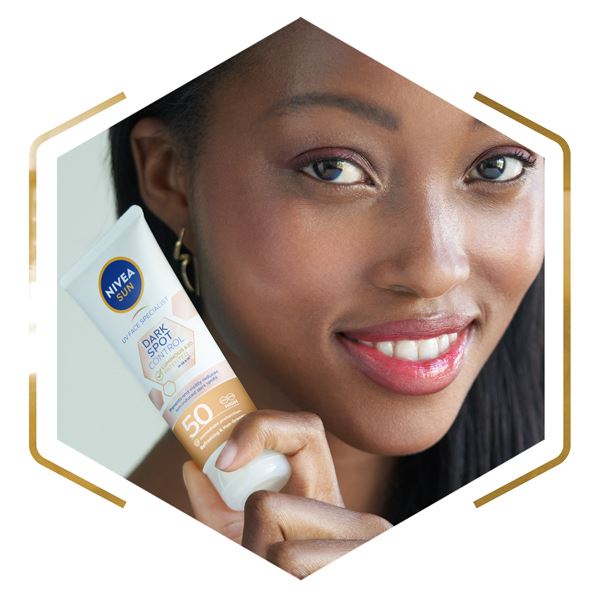How to Choose the Right Nivea Cream for Chocolate Skin – A Comprehensive Guide
How to Choose the Right Nivea Cream for Chocolate Skin – A Comprehensive Guide
Chocolate skin is beautiful, unique, and should be celebrated! Unfortunately, there are many skin care options out there that don’t work for people with chocolate skin. But don’t worry! Nivea, one of the most popular skincare brands, offers a wide range of products designed specifically for dark skin tones. In this comprehensive guide, we’ll explore how to choose the right Nivea cream for your chocolate skin, including what to look for, key ingredients to avoid, and tips for selecting the best product for your skin type. With the right knowledge and a careful selection process, you can find the perfect Nivea cream that will give your chocolate skin the nourishment and protection it deserves.
What Makes Nivea Cream Suitable for Chocolate Skin?
Nivea creams are specially formulated for people with chocolate skin tones. This means that all Nivea creams are made with ingredients that are gentle for sensitive skin types. However, the specific ingredients vary from product to product, so it is important to take note of these differences in order to select the best Nivea cream for your specific needs. Most Nivea creams are made with at least one of the following ingredients: Shea Butter, Coconut Oil, Glycerin, and/or Jojoba Oil. These ingredients are great for moisturizing, protecting, and repairing sensitive skin types. Additionally, Nivea creams are fragrance free and rarely contain any harmful dyes. This makes them a great choice for people with skin allergies and sensitivity issues.
Key Ingredients to Avoid
For the most part, Nivea creams are well formulated and gentle on the skin. However, there are some ingredients that you should watch out for: Glycerin: This is one of the key ingredients in many Nivea creams. While it is great for moisturizing and keeping skin healthy, it can also draw water out of your skin and cause irritation. If your skin is particularly sensitive, you may want to avoid this ingredient in favour of a less risky moisturizer. Glycolic Acid: You may have heard that glycolic acid is great for exfoliating the skin. While this is true, it is also a very strong acid that can cause irritation to sensitive skin types. If you have sensitive skin and choose a Nivea cream with glycolic acid in it, you run the risk of increased dryness, redness, and even allergic reactions. Benzoyl Peroxide: This is a common acne-fighting ingredient found in many Nivea creams. While it is effective at killing acne-causing bacteria, it can also irritate sensitive skin types. Avoiding benzoyl peroxide and instead choosing a Nivea cream with ingredients that are gentle on the skin is essential if you have sensitive skin.
Factors to Consider When Choosing a Nivea Cream
After reading the ingredients list of a few Nivea creams, it may seem like your choice is limited. In truth, however, the number of creams available is practically limitless. However, before you choose a Nivea cream, there are a few factors to consider. Skin Type: First and foremost, you should take into account your skin type. There are a wide variety of Nivea creams available, so you are likely to find one that meets your skin care needs. Price: While the price of a Nivea cream doesn’t always correlate with quality, it is important to find a cream within your budget. If you are on a tight budget, there are many Nivea creams that cost less than $10. Fragrance: If you have sensitive skin, you may want to avoid creams scented with fragrances, especially artificial fragrances.
Understanding Your Skin Type
As we discussed, Nivea creams are available for a wide range of skin types. However, you should still take into account your individual skin concerns when choosing a Nivea cream. Some skin types are more prone to dryness, breakouts, or even allergies. Dry Skin: Dry skin is characterized by flaky patches on the skin, particularly on the face and around the nose and mouth. While dry skin can affect all skin types, it is particularly common in people with darker skin. If you have dry skin, you should look for a Nivea cream that is rich in glycerin and jojoba oil. These ingredients help moisturize and protect the skin from harmful environmental factors. Normal Skin: Normal skin is described as having balanced oil production and being free of excess dryness. If your skin is normal, you will benefit from a Nivea cream with a lightweight formula that prevents acne while protecting your skin against harmful environmental factors. Acne-Prone Skin: If your skin is more prone to breakouts, you may want to choose a Nivea cream with ingredients like benzoyl peroxide. This can be particularly helpful for teens who are just beginning to deal with acne.
Nivea Creams for Different Skin Types
Normal Skin – Nivea Cream Normal Dry Skin – Nivea Cream Dry Skin Combination Skin – Nivea Cream Normal/Combo Oily Skin – Nivea Cream Normal/Combination Combination Skin – Nivea Cream Normal/Combo Dry Skin – Nivea Cream Dry Skin Oily Skin – Nivea Cream Normal/Combination Normal Skin – Nivea Cream Normal Dry Skin – Nivea Cream Dry Skin Oily Skin – Nivea Cream Normal/Combination Combination Skin – Nivea Cream Normal/Combo Normal Skin – Nivea Cream Normal Dry Skin – Nivea Daily Essentials Refreshingly Light Daily Moisturizer Oily Skin – Nivea Visibly Smooth Daily Shine Free Moisturizer Combination Skin – Nivea Visibly Smooth Daily Shine Free Moisturizer








LEAVE A COMMENT
You must be logged in to post a comment.